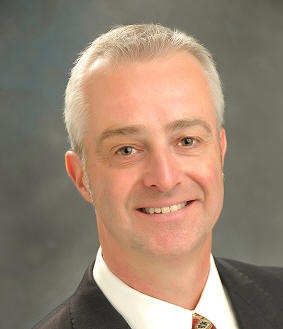
Three things I learned about the history of Silicon Valley at the CNSV Dinner
Posted Friday, Jun 12, 2015 by Jonathan Wells
Last night I attended CNSV’s Annual Dinner. Besides the great food and excellent company, I especially enjoyed the presentation on “The Fairchild Patent Notebooks.” Our speaker, David Laws from the Computer History Museum, shared his enthusiasm and insight from studying the 200,000 handwritten pages documenting Fairchild’s engineers’ ideas and day-to-day accounts of their work. The collection of documents has been described as the “Founding Documents of Silicon Valley.”
Here are three things I learnt:
- Fairchild invented much more than the integrated circuit. David explained how Fairchild engineers were prolific inventors, and also essentially invented the planar process, TTL logic and CMOS process.
- Behavior in The Valley back in the ‘50s and ‘60s somewhat mirrored the business environment of today. For example, Fairchild was founded by the “Traitorous Eight,” who after nurturing and growing Fairchild and turning into the Google of the day, all left for new fields or to form their own startups.
- Engineers kept great notebooks. David explained this was a roll-over from the Bell Labs way of record keeping. It was fascinating to see detailed day-by-day narratives of ideas generated and work performed.
I’d be interested in what others thought and learned?
4 Comments





Your third insight got me to thinking:
You wonder if 25 or 50 years from now someone will do a Fairchild video series leveraging all of the contemporaneous documentation in the same way that Burns did the Civil War using letters home and old photos. It seems like so little of the media actually gets the reality of engineering right.
Steve Leibson also blogged about the dinner and had this observation: The ideas and innovations in these notebooks, in conjunction with the patents developed from this work, constitute the archaeological history of the semiconductor industry.
See http://forums.xilinx.com/t5/Xcell-Daily-Blog/The-Fairchild-Patent-Notebooks-A-dinner-presentation-with/ba-p/635190
I learned that it took a critical mass of brilliant people all contributing important pieces to the overall project to make these key breakthroughs. The founders of Fairchild Semiconductor came from Shockley Semiconductor. Some of the most critical notes and concepts were written down in their Fairchild notebooks within weeks of starting the new company (hey, it does take some time to get labs and equipment going and the furniture arranged!!). These breakthroughs could not be made at Shockley Semiconductor basically because Shockley was brilliant but arrogant and a poor manager. Once these same key people had some freedom to innovate and pursue their ideas, amazing things began to happen quickly. The case of Fairchild Semiconductor vs. Shockley Semiconductor is another very clear example of how bad leadership can kill a company and great leadership can enable great things!
I learned that several Gordon Moore notebooks were missing, especially the era when Gordon proposed Moore’s Law.
When I was consulting at National, I was involved in directing the notebooks towards the Computer History Museum. However, it took the TI takeover to get it done. National’s President before the TI takeover thought the notebooks had IP value. We could not convince him it did not.
As IEEE Milestone chair, I am doing two milestones of interest:
David Laws is helping on both.
These 2 milestones are targeted to be unveiled at the new San Antonio Village. Because the Village, where Shockley Labs was located, is under construction, the unveiling ceremoney is about 2 years away. A memorial with 3 tall pieces of artwork is planned. These tall pieces will represent the silicon transistor (Fairchild) and the 4-layer silicon diode (Shockley’s “marketing disaster”)
The unveiling ceremny is open to all. We may talk Gordon Moore into coming.